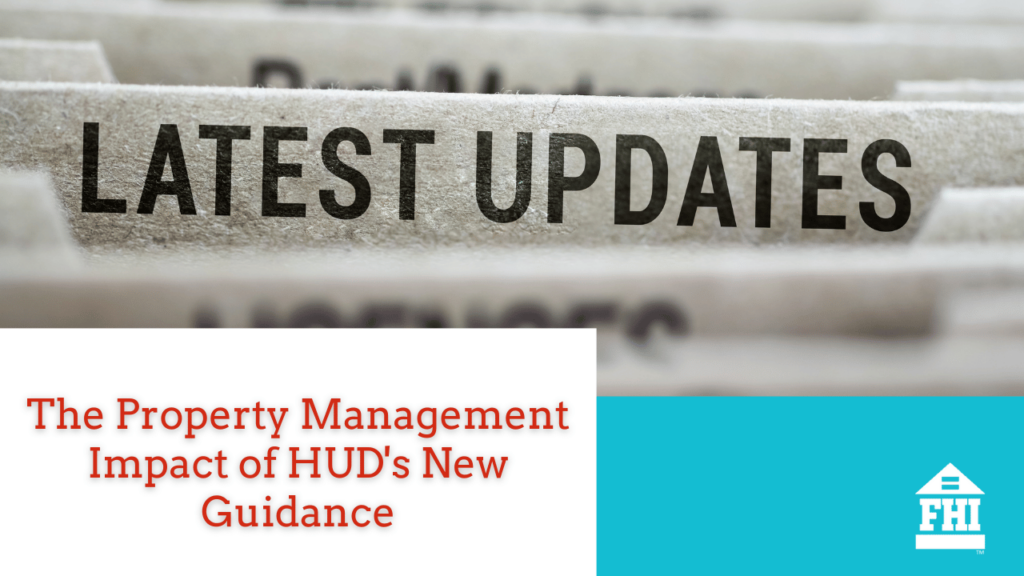The rules of fair housing are evolving yet again. On April 29th, 2024, HUD released new guidance, and on May 2nd, it announced these new notices in a press release. These updates focus not only on AI but also on changes to the screening and advertising processes, especially as they pertain to private market housing. This article focuses on giving a brief overview of these topics and explaining why you need to review these changes ASAP.
Estimated reading time: 4 minutes

Table of contents
Why the New Guidance?
These two new guidelines stem directly from an executive order issued by President Biden on October 30th, 2023. This order, which was sent to multiple federal agencies, including the Department of Housing and Urban Development (HUD), mandated a thorough examination of issues pertaining to artificial intelligence (AI).
The directive was aimed at understanding and addressing the rapid proliferation and integration of AI technologies in various sectors, stemming from businesses to government operations.
Doubling Down on AI
The first notice handed down by HUD concerned the use of AI software for possible tenant screening in rental housing. The second notice concerns how AI software advertises your property.
This new guidance purports to address the misuse of algorithmic capabilities in tenant selection and housing availability advertisement. When reviewing the research cited in the announcement, it was found that AI can create and introduce bias into your processes, which can lead to potential discrimination. It was highlighting that using protected characteristics in your AI screening programs can now lead to a potential violation.
Claiming that you weren’t aware of such discriminatory practices is not a proper justification. These issues also become further complicated when there are possible legal liabilities, such as intentional discrimination and disparate impact.
A New Look At Disparate Impact
While the issue of disparate impact has been reviewed before, these new notices have changed the way the property management industry needs to address it. Screening processes are used by properties to attempt to predict future behavior in a possible tenant. Upon a deeper inquiry of mainly the first notice and the research cited alongside it, there is a change in screening criteria and standards (including those with complex models commonly found in AI programs
To explain this thoroughly, we are going to use a common rejection type during screening processes: low credit. If someone has a low credit score, then common sense, and even many AI programs, states that this tenant may not pay their rent. HUD’s new guidance details, however, that if there is no proper research behind the rejection, there is no valid justification for rejection.
Besides credit scores, HUD’s guidance also listed eviction records and criminal history records as other sources for disparate impact if used as a rejection reason with no justification. It was found that rejections based on eviction records created disparate impact on minorities, families with children, and individuals with disabilities.
As a general conclusion, if the screening company/program and the housing provider do not provide justified research to support rejection based on credit scores, eviction records, and criminal history, this may be a fair housing violation.
Takeaways Based on New Guidance
Due to the research cited alongside these new notices, it can be noted that HUD has been trying to use the Fair Housing Act to apply requirements found in federal housing for the longest time and apply to private market housing. For example, when there is a rejection in federally funded housing and an appeal is made, the housing provider is required to revisit their decision.
This will also apply to private market housing, providing applicants with the reasoning behind their rejections. Essentially, private market housing now needs to be incorporating the practice of appeals.
This summary only scratches the surface of the guidance handed down by HUD and glosses over how this will change different processes within the property management industry. There are plans for follow-up articles and discussions on this topic, so be on the lookout for those. Until then, ensure you stay informed as this topic continues to grow. Do not assume the obvious, and continually pay attention to any developments. As always, stay compliant with fair housing.
FHEO Guidance on Screening of Applicants for Rental Housing
FHEO Guidance on Advertising on Digital Platforms
You May Also Like:
